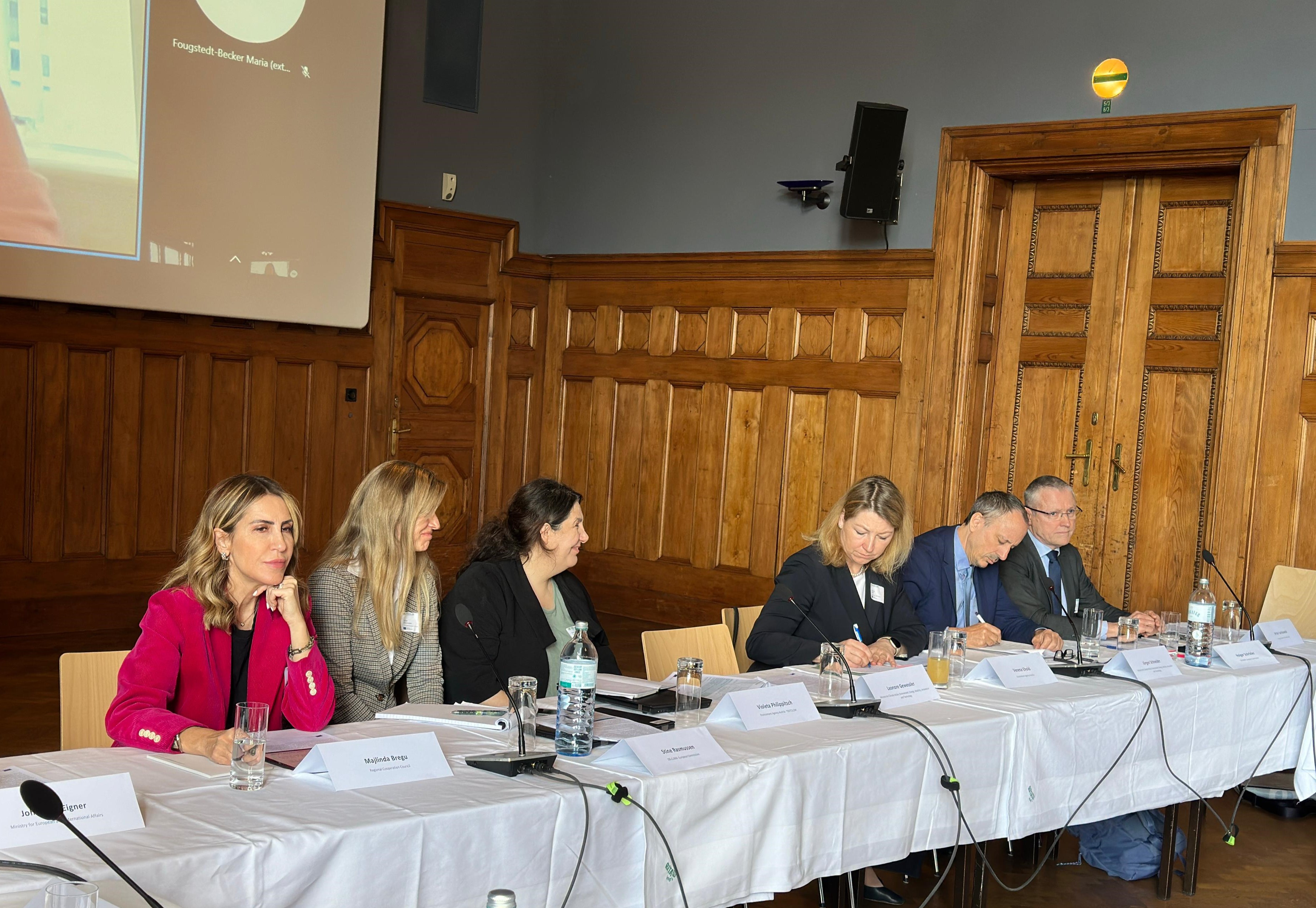Bregu: Green Transition of the Western Balkans Cannot Be Achieved Without Substantial Support
26 April 2024

Transition towards Low Emissions and Climate-Resilient Economy in the Western Balkans and Türkiye Ministerial Conference in Vienna on 26 April 2024 (Photo: RCC)
RCC Secretary General Majlinda Bregu Presents RCC Activities at Vienna Ministerial Conference
Vienna – The Secretary General of the Regional Cooperation Council (RCC), Majlinda Bregu, outlined the role of the RCC and the situation in our region regarding the green transition and energy sustainability, at the TRATOLOW Ministerial Western Balkans and Türkiye Conference held in Vienna today.
“The call for accelerated integration of our region and earlier access to the EU’s Single Market necessitates that our region delivers strongly on green and energy transitions, also in view of integration into the Internal Energy Market. Geopolitical tensions strain available resources and might impact policy prioritisation. Neglecting the green transition is not viable, as it poses the risk of anchoring the region in outdated, carbon-intensive technologies. This stance could seriously undermine our competitiveness in the EU Single Market,” said Bregu.
“A large convergence gap between the WB and the EU means that the green transition cannot be achieved without substantial support, particularly in the field of energy. Take, for example, the Tuzla power plant in Bosnia and Herzegovina, which, at 60 years old, stands as one of Europe's major air pollution sources. The cost to decommission and repurpose it ranges from 7 to 35 million EUR. Our region lacks dedicated funding to move away from coal reliance and to address the social and economic impacts of such a change. Opening the possibility for the WB to benefit from the EU Just Transition Fund and establishing the Decarbonisation Committee could be two concrete steps that would ensure a socially equitable transition away from coal reliance,” added RCC Secretary General.
Ms Bregu emphasised that the Green Agenda for the Western Balkans, which is being coordinated by the RCC, is a dynamic and evolving initiative that requires the collective efforts of the governmental, private, and non-governmental sectors to nurture, grow, and shape towards a sustainable plan for the future.
“Leaving behind a legacy of sustainable development for generations to come means that we need to seriously engage with all the challenges but also to smartly capitalise on all the inherent opportunities in green growth,” concluded Bregu.
The event, which gathered ministers, policy experts, and agency representatives who focus on environmental questions in the European Union, Western Balkans, and Türkiye, was organised by the Transition towards Low Emissions and Climate-Resilient Economy in the Western Balkans and Türkiye (TRATOLOW) project.



